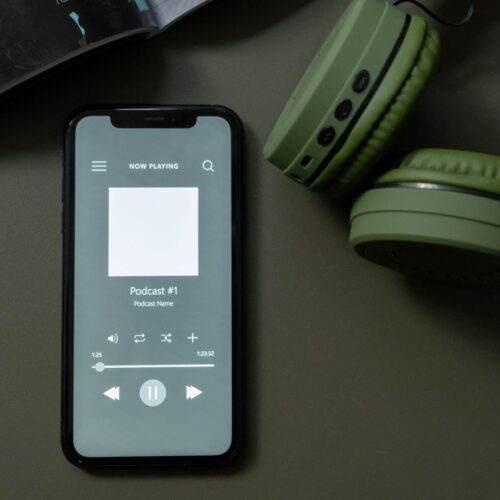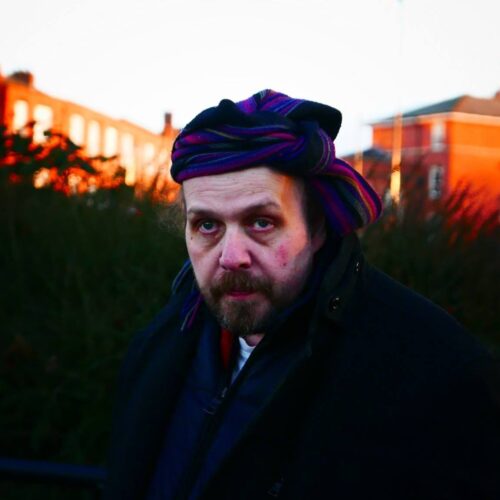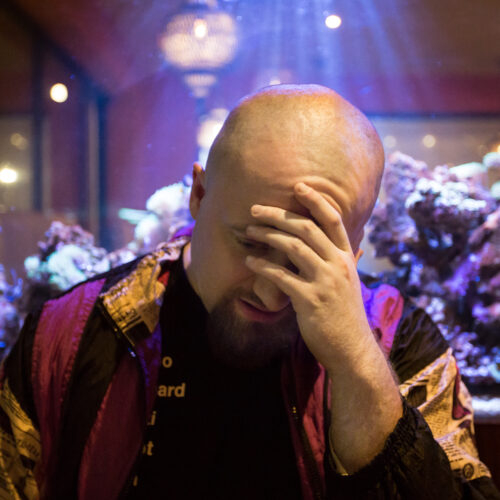
In Conversation with: Joanna Ward
International Women’s Day 2019. Friday, 8 March.
Joanna Ward is a composer, performer, and curator. She has written a short opera, ‘hunger’, which was written and premiered at ENO Lilian Baylis House, and later taken to the 2018 Edinburgh Fringe Festival.
I loved your piece ‘when will things change’ when I heard it performed by the Northern Contemporary Collective in Leeds. Why did you write it?
I honestly wrote this piece out of feeling angry. It was around this time last year, when lots of composing competitions and schemes were announcing their winners, and I was seeing shortlist after shortlist and winner after winner and it was all (or mostly) men. I was utterly frustrated and feeling quite overwhelmed by how evident and depressing it is that oppressive, patriarchal structures still completely dominate the new music world (in SO many ways). And so I sat at home and made this piece. It’s handmade and visceral and un-mediated, really, and juxtaposes delicate line drawings and angular, explicitly angry words. It’s an invitation to performers to acknowledge and renounce the restrictive structures of power at work in the making of new music.
There is always a risk with graphic scores that, because of the level of control you relinquish to the performer(s), your intentions might not always come across in performance. Were you happy with the Northern Contemporary Collective interpretation?
I was so delighted with the NCC performance! The score suggests words and harmonies, and space/stillness, I think, but I didn’t have in mind any kind of genre or line-up at all, and so I was (am!) quite open to radically different interpretations and realisations of it. I really loved the angry, jazz/punk delivery and the really free-floating structure, though, and I’m so glad it was done that way because, though it’s an aesthetic that I really appreciate, it’s probably not what I would have come up with! Regardless of my own taste, it felt like the performers had really got on board with the piece and made it their own which meant it was always going to be great. I think anyone who genuinely considers what the visual aspect of the piece means to them, as well as its message, will produce a really valid, engaging performance.
I first encountered your music as part of the Next Wave, a brilliant scheme run by NMC and SAM. Your piece ‘to think at the sun’ possesses a completely unique timbre. Why did you choose this instrumentation in particular?
Well actually, the line-up was pre-determined for me, really! We were given the line up of RNS players (two violins, horn, trumpet, oboe/cor, and percussion) to choose from, and then assigned a soloist, and I was assigned Quinta, who pays violin, viola, and musical saw. I chose to use all of the players at my disposal, and also add a stereo tape part. I think it was more the choices with the instruments, to make really delicate, slowly shifting clouds of sound, that is the more interesting thing about the piece — though I was so lucky to be able to work with Quinta, and her spooky and ethereal saw sounds certainly inspired the direction that the piece took! The way the scheme was set up meant there was a long development process for the piece, which afforded the unusual and very welcome opportunity to really interrogate and pick apart musical ideas in early stages. So, the sections of the finished piece are actually reeeeally drawn out versions of short extracts that I workshopped in the first session with the players, which was 7 months before the final pieces were due. I took those ideas and repeated cells, stretched out ideas, and added resonance, texture and depth in the ensemble as well as the electronics part. I think something else that contributes to the unusual timbre is that the tape part uses manipulated recordings of rehearsal sessions — so the saw sound floats out of the stereo mix as well as the live recorded parts, which is a really special cumulative effect I think.
Have you had a favourite ‘moment’ as a composer; a significant career achievement, or some other event that’s been inspirational?
I think a significant career achievement that immediately springs to mind was having my music played on Radio 3 (it was to ‘think at the sun’!). Much as it’s an institutionalised, top-down form of affirmation, it was undeniably really cool and very exciting to hear my name being announced on national radio! And I feel like it’s definitely seen as a career landmark for composers. In terms of events, I was really lucky to have my music being performed as part of Listenpony’s 2018 UK tour, and the London concert that I attended was totally inspirational and very affirming! The piece I wrote was for La Vaghezza — baroque cello, violin, and theorbo, and so that really made me think about how to be flexible and translate my usual ideas onto a totally new instrumental setup, and I was really proud of the finished piece, it’s very delicate and static (similar in some ways to ‘to think at the sun’). The London concert that I attended was in a theatre space that was at that time being used for an art exhibition, so there were lifesize human body sculptures hanging and posing all around the room — even just that creative and fun use of space helped contribute to the real sense that this concert was going to showcase a refreshing approach to new music making. The audience was also completely full, with people perched all over the room, on cushions and standing around the statues, which meant there was a really electric atmosphere — and it’s always a treat for your music to be played to a big audience! The concert was then in three segments, the first two mixing new commissions with canonic works, and the third a mini set from Elana Tonra (of Daughter) which was in itself incredible. All of it just really spoke to my idea of what new music should be and how it should be presented now. It left me feeling really uplifted about the future of composing, inspired to make events happen myself, and just really amazed and grateful that I’d been lucky enough to contribute some of my own music. In terms of favourite moments, though, I think it would have to be the experience of the sold-out final few shows of my short opera hunger at the Fringe this past summer. I was producing the show as well as having written it, and that all that came with producing a Fringe show was an extremely steep learning curve; but overall, the project proved to me how much value and empowerment there is in making projects happen yourself. I had such a fun time doing the show, and hearing lots of positive feedback from a really eclectic mix of Fringe audience members (especially given its explicitly feminist message). The Fringe is such a wonderful phenomenon, the city is so alive and I saw some great (and some terrible) shows with a bunch of my best friends, whilst also being a part of it ourselves, with a show we were all really proud of — don’t think you can ask for more really!
Are you working on anything interesting right now?
Yes, absolutely! I am working on a few graphic scores, actually, one of which is for a concert at Café OTO at the end of April; I am such an OTO fangirl, several of the most inspiring concerts I’ve seen have been there and I think it’s such a cool space and institution, and so I’m very very excited that I’m having a piece performed there! Otherwise, my uni work is my main priority at the moment (I am doing my undergrad music finals), but I’m working on two really fascinating extended essays — one, my dissertation, is exploring why women are still underrepresented in the world of composing, taking in lots of angles (gender studies, sociology, gender in pedagogy, music aesthetics, institutionalisation of composing, the music industry…) as well as interviewing composers and individuals working in new music to create a summative overview of the factors holding women back. The other is an analytical essay on semiotics and meaning in graphic scores, focussing on Claudia Molitor’s book of improvisation ‘Melt’, and that’s really making me think about meaning and communication in music.
Most people reading this are musicians just beginning their composition journey – is there any advice you’d give to those just starting out?
From a creative perspective, I’d say try and find others’ music that really inspires you. I have a few big Spotify playlists called ‘comp inspo’, ‘I want to make things like this’ etc. that have loads of pieces that I find fascinating and inspiring. I think it’s really important when doing this to push yourself outside of the sounds and genres that you’re comfortable with — include some popular music that has a hook or a lyric that inspires you, include some 80s complexity that you have no aspiration to actually sound like but that has moments of timbral genius, include some minimalism that mesmerises you even though you don’t actually want to be a Steve Reich cover band. That way, you’ll keep your mind as open as possible about what music is, what new music can sound like, and hopefully you’ll be able to draw those inspirations together (in however abstract a way) to form a toolkit for your own voice. In terms of making composing happen for you practically, I would say put yourself out there as much as possible. When I was really first starting out I wrote pieces for my friends, sought advice from teachers, fellow composers and other musicians, as well as entering as many young composer competitions as I could (much as these are flawed and can be a bit depressing, I do think that when you’re first starting, they don’t hurt and can force you to write more, which is a good thing!). I feel that the NYOGB composers scheme deserves a mention here — it really pushed me to be more bold (and cutthroat!) with my own ideas, and ultimately gave me the confidence to articulate my ideas and motivations for composing. Ever since then, I’ve felt confident calling myself a composer, showing others my work, and looking for opportunities (or, importantly, making them for myself), and that’s meant that whilst at uni I’ve had some really amazing composing experiences! It comes down to being proactive, I suppose. I also think it’s a really good idea to nurture performing alongside your composing, to keep a sense of the music as living and breathing (no need to be a pro classical musician — I sing and play guitar and bass and I am certainly no virtuoso!). But it means you’re able to realise your own ideas in real time, as well as explore other fascinating musics in a more immediate and visceral way.
Image: © Ruari Paterson-Achenbach from https://www.joannamward.com/.





